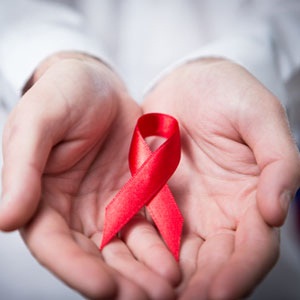
South Africa has the highest HIV/Aids prevalence rate than any other country in the world. In fact, UNAIDS estimates that 5.6 million people in South Africa alone are living with HIV, and in 2011, 270,000 HIV related deaths were recorded.
Additionally, in spite of universal Prevention of Mother to Child Transmission (PMTCT) coverage, in South Africa, nearly two out of 10 people aged 15 to 49 are HIV positive. According to UNAIDS, HIV still accounts for six out of 10 maternal deaths.
Read: Stigma thwarts HIV fight
Human immunodeficiency virus, otherwise known as HIV, is a virus that attacks and weakens the immune system, destroying the healthy immune cells (CD4 cells or T cells) that fight against infection and disease. The virus then uses these cells to make copies of itself and spread.
A person can contract Aids, the final stage of HIV infection, once the virus has depleted a large number of these healthy immune cells, causing the body to no longer be able to fight off infection.
As a HIV positive person progresses towards Aids, he may develop symptoms such as rapid weight loss, prolonged diarrhoea, pneumonia, chronic fatigue and memory loss, to name a few.
Additionally, there are many factors that contribute to the transmission of HIV, such as poverty, sexual intercourse with an infected person, sexual violence, limited access to quality medical care, injection with a contaminated needle, blood transfusions, etc.
There is currently no cure for the virus, but there are treatments that can help slow down and control its progression.
Read: HIV and prisoners
Though there is a decent amount of knowledge about HIV in regards to how it is transmitted, a Southern and Eastern Africa Consortium for Monitoring Educational Quality (Sagmex) report states that two thirds of children in grade six in South Africa do not have the minimum knowledge of HIV/AIDS, therefore increasing their risk of possible contracting the virus.
Another problem with HIV is that some people can live with the disease for years without developing any symptoms. In these cases, knowledge about HIV transmission is extremely important.
To combat this issue and to assist those living with HIV, within the last few years, a number of smartphone apps have been created.
Metropolitan Health, the largest administrator of medical schemes in South Africa, in conjunction with The Open Medical Project South Africa (TOMPSA), has developed and launched a HIV treatment guideline app named HIV Clinical Guide aimed at aiding healthcare professionals.
The smartphone app, available on both iOS and Android, contains information on all of the latest developments in HIV medicine and clinical care. The app also includes HIV treatment guidelines for all levels of healthcare professionals.
Read: The gels that may stop HIV
“The app covers all aspects of HIV care from diagnosis, to starting criteria for anti-retrovirals, to switching treatment regimes. The toxicity and adverse reaction pathology calculator determines whether a patient should remain on a specific treatment or switch,” stated Metropolitan Health in a recent press release. “The paediatric and renal dosage calculator is extremely useful in verifying if dosages are appropriately prescribed, and a comprehensive HIV drug formulary allows for easy reference of information such as contra-indications and pharmacokinetics.”
Another app called HIV Connect, created specifically for HIV positive patients with Androids, provides users with an active community where they can discuss, ask questions, and learn about HIV.
PozTracker, an iPhone only app, may also prove useful for HIV positive patients in need of a HIV tracking tool. This app helps users monitor their test results and track their medications. It alerts users when it’s time for another dose of medication, allowing them to stick to a regulated medication routine, and provides a graphically tracks their HIV measurements.
Read more:
HIV & Exercise
HIV circumcision policy by June
HIV and parents
Sources: Healthline, Aids, Planned Parenthood, All Africa, Medical News Today, Aids Foundation South Africa and Mail & Guardian




 Publications
Publications
 Partners
Partners













